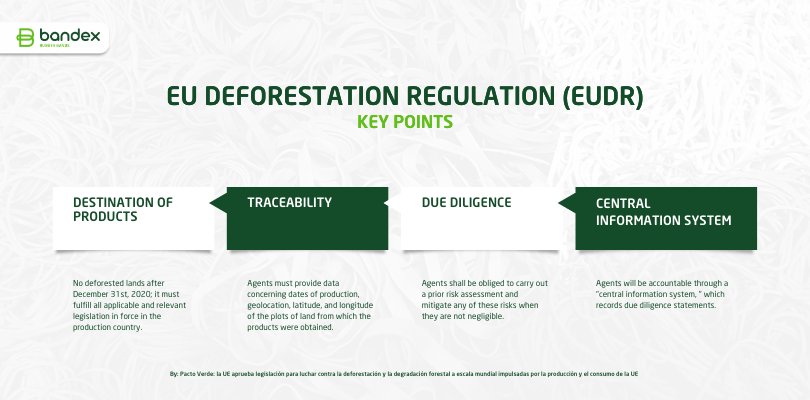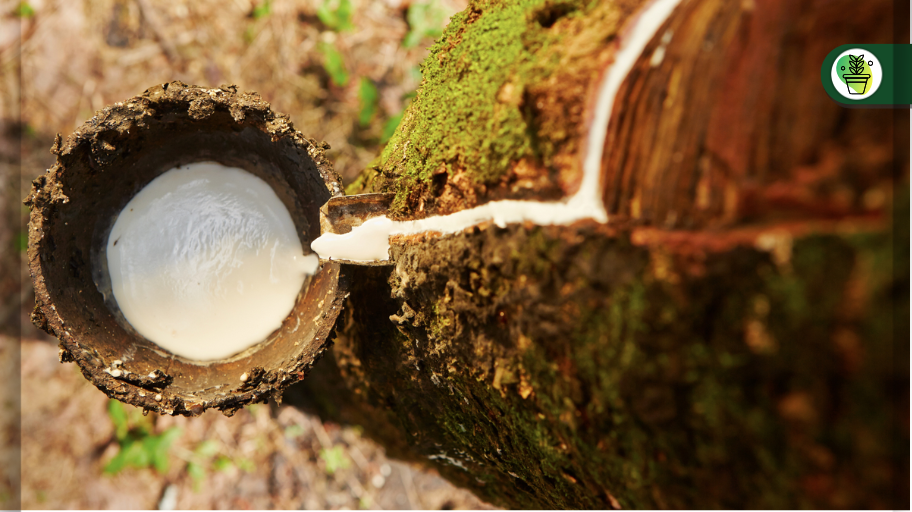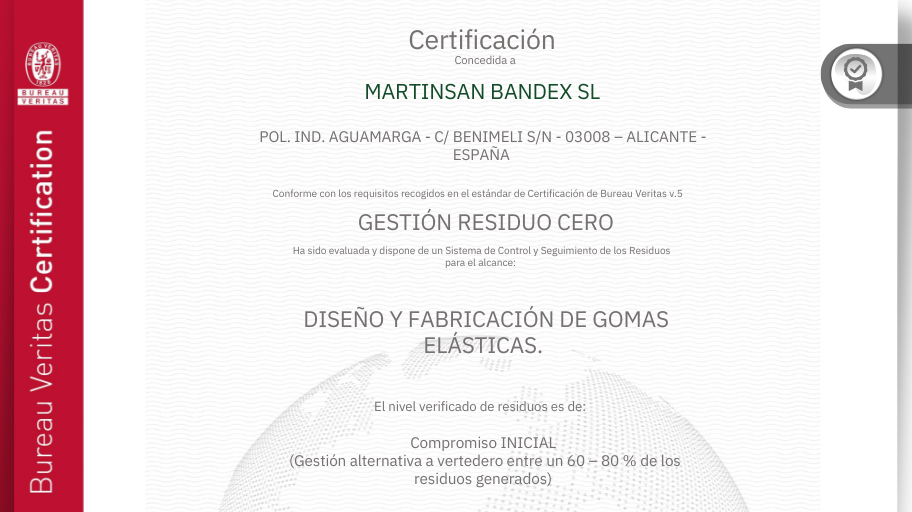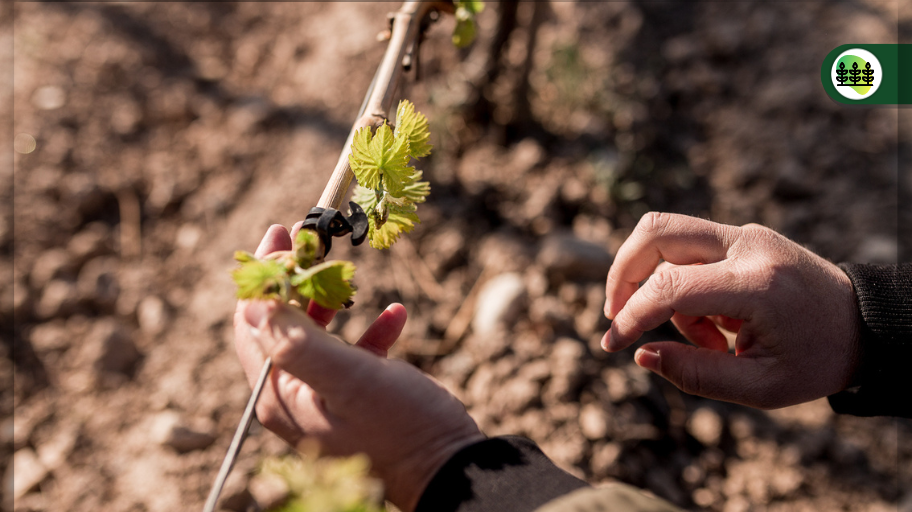On December 6th, the European Parliament and the Council reached a “pioneering” agreement to minimize the European Union’s contribution to deforestation and promote sustainable resource consumption.
The EU Deforestation Regulation (EUDR) will regulate in the European market the marketing and export of an initial list of products and their derivatives, such as palm oil, cocoa, coffee, natural rubber, livestock, timber, soybeans, beef, leather or printed paper products, furniture, cosmetics or chocolate.
Why is this new EU Deforestation Regulation necessary?
Virginijus Sinkevicius, EU Commissioner for Environment, Oceans and Fisheries, subscribes to the European decision as the “world’s first law to combat global deforestation.” While the decade 2010 – 2020 saw a decrease in the rate of net forest loss to 4.7 million hectares per year, according to our FAO’s “Global Forest Resources Assessment 2020” report, our planet has lost 178 million hectares of forest since 1990. Yes, this would be equivalent to an area roughly the size of Libya.
“As we make the green transition in the EU, we also want to ensure that our value chains become more sustainable. Combating deforestation is an urgent task for this generation and a great legacy for the next”.
Virginijus Sinkevicius. EU Commissioner for Environment, Oceans and Fisheries.
Implementing actions that contribute to the reduction of deforestation in some countries and the increase of forest area in others, as well as the natural expansion of forests, is part of the political initiatives that the European Green Pact is managing to put the EU on the path towards an ecological transition.
That is why the new rules focus on reducing biodiversity loss and greenhouse gas emissions and preserving habitats that guarantee the livelihoods of millions of people today, says the European Commission.
Main provisions included in the EUDR regulation
The Regulation’s entry into force will mean that economic operators and traders must comply with the rules within eighteen months.
The regulations included in the Regulation include:
- Destination of products: The production and export of products covered by the Regulation must demonstrate that they have not contributed to deforestation by being produced on land that has not been deforested after December 31, 2020, and that they comply with all applicable and relevant legislation in force in the country of production.
- Traceability: Data concerning the dates of production, geolocation, latitude, and longitude of all parcels of land from which the products listed in the Regulation were sourced shall be evidenced by the “agents” – the companies introducing relevant products into the EU market or exporting them from the EU market.
- Due diligence: Agents will be obliged to carry out a prior risk assessment before introducing or exporting the products included in the Regulation and, consequently, mitigate any risks where they are not negligible.
- Central information system: Agents will be accountable through a “central information system” where due diligence declarations will be recorded and accessible to national and customs authorities.

What is happening with natural rubber?
The advantages offered by using natural rubber in different market segments due to its high resistance and, at the same time, flexibility and permeability have increased its demand in Europe, exceeding one million tons. It is mainly destined for the automotive industry, although it extends to other manufacturing lines, such as elastic rubber bands.
Why is it included in the EUDR? The natural rubber consumed in the EU is not produced in the territory but is imported entirely from Southeast Asia and Africa. This practice has harmed the preservation of these global biodiversity hotspots. Its Regulation, through the implementation of the Regulation, will mitigate the damage of deforestation or conversion of natural forests, the degradation of ecosystems, and the loss of biodiversity caused by the extraction of natural rubber.
What actions have we implemented to contribute to the care and preservation of the environment?
Our company has specialized in manufacturing elastics and anchors bands made of natural and synthetic rubber for over 40 years.
We use top-quality raw materials and are driven by respect for the environment and sustainable development. We, therefore, welcome this legislative initiative and are committed to complying with the regulations set out in the Regulation to protect biodiversity and halt forest degradation.
Suppliers and raw materials
From Martinsan Bandex, the selection of suppliers and raw material controls are premises to approach projects with a total guarantee from the beginning to the end. Ensuring that their import complies with the applicable legislation governing the country of initial production, as well as the care of the plants and habitats from which the product is extracted, is part of the pillars of our company.
Zero Waste Certification
In 2018, our company started a Sustainability Strategy; with the firm decision to exercise responsible leadership in the manufacture of elastic rubber bands, we implemented a Waste Management System, which led us to obtain the 2021 “ZERO WASTE” certification by Bureau Veritas.
In order to reduce the environmental impact generated by our activity, we implement responsible management in all processes of our value chain to minimize waste generation and ensure sustainable production and consumption methods. We value the different types of waste generated to reintroduce them into the market and prevent them from being disposed of in landfills. Consequently, we are committed to using recycled materials and renewable energies such as solar thermal energy.
Use of renewable energies
The installation of photovoltaic solar panels has enabled us to generate part of the energy consumed in our industrial production and outsource the generation to other consumption chains.





